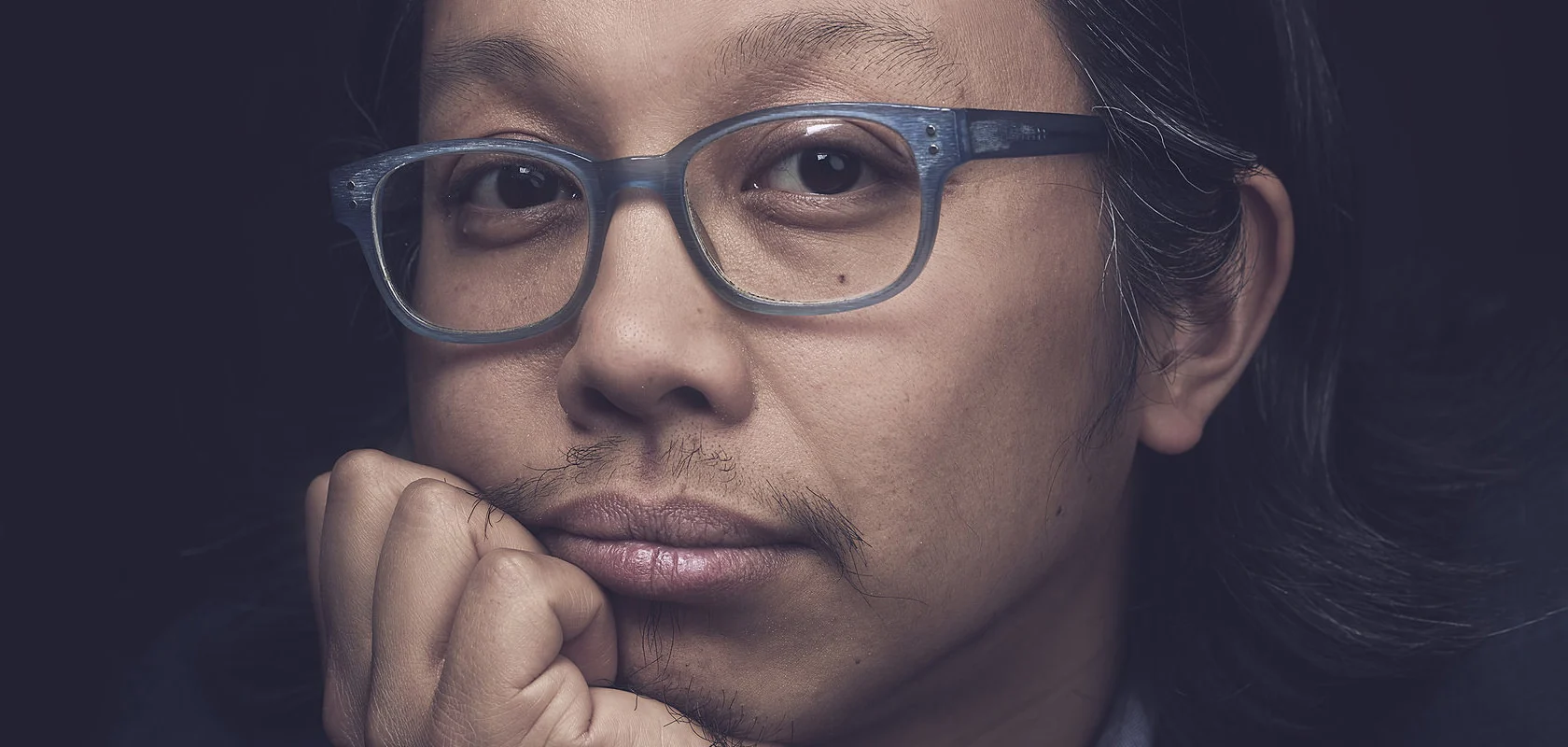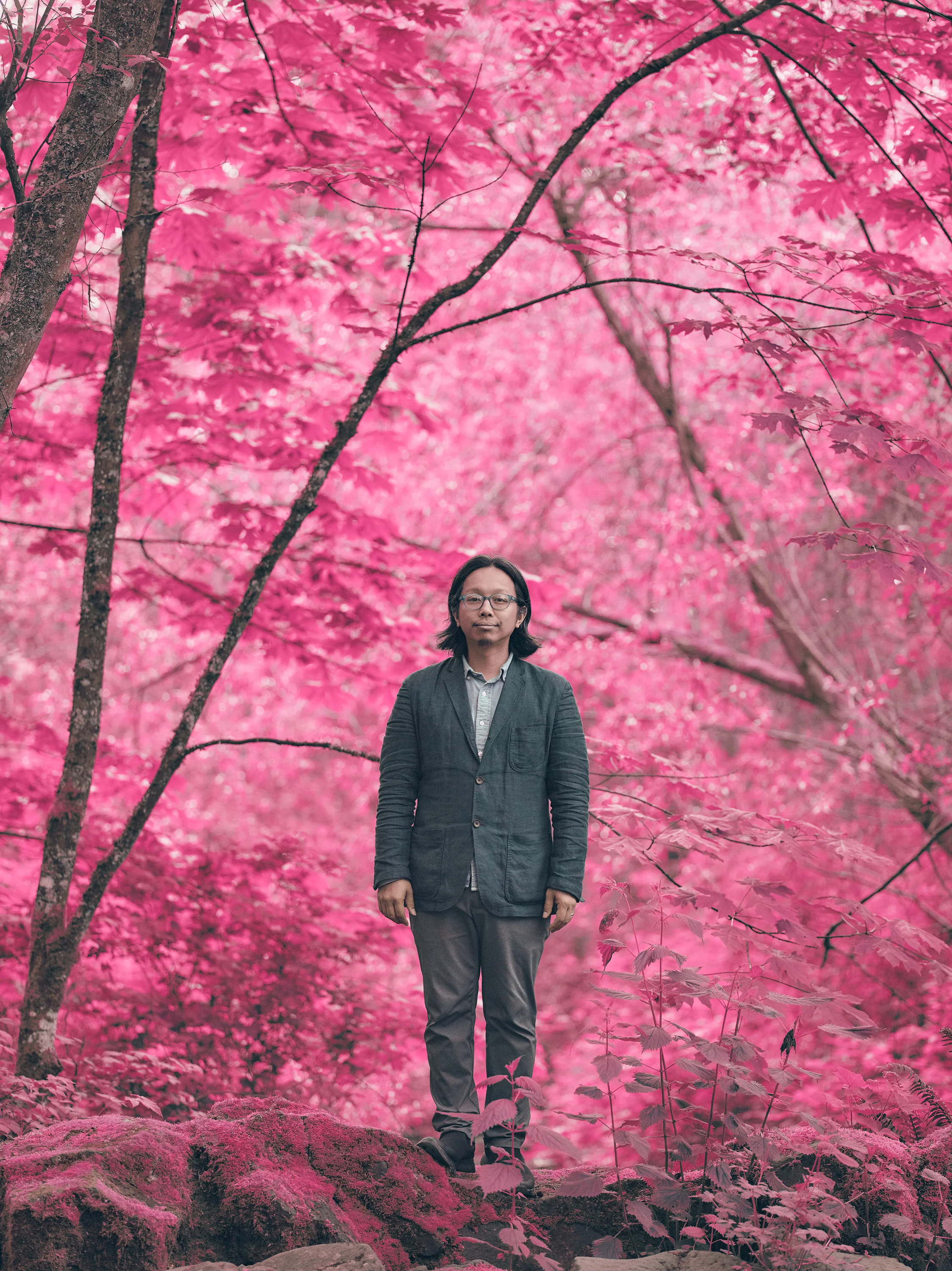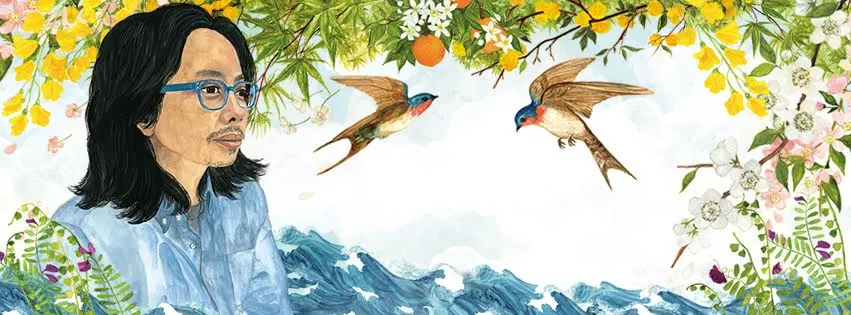Tomo Nakayama on Finding a Stage to Suit Your Song
- 10 May 2018
- ByRichard Laing
- 2 min read

Tomo Nakayama is one of the Seattle music scene’s true gems.
For over a decade, Tomo has been a fixture around town both as a solo artist and as frontman of the chamber-pop band Grand Hallway.
In June of 2017, Big Cartel invited Tomo to Salt Lake City to play some songs and talk about his experience as an independent artist at our annual company get-together, Indie Fest. A bunch of things he said that night, both in his set and in conversation afterwards, really stuck with me - particularly when he talked about a decision he made a few years ago to commit to making a living from music. This conversation is about his experience as an independent artist and working for the opportunities to do things his way.

What was on your mind when you made the decision to become an independent artist?
I found that I didn’t really like playing in a large venue where you have to play a certain kind of music to connect with the audience. You have to make bigger moves and the music needs to be louder. And that's just out of necessity. Some people thrive in that setting; for Bowie or Queen that can be awesome. But the kind of music I wanted to make wasn’t going in that direction.
So I tried a bunch of different settings. When I did my record release, I did 14 different pop-up shows in one day around the city, trying to highlight small businesses. A lot of my friends have small businesses as well so I was trying to highlight their businesses by partnering with people I knew and had relationships with and setting up in places people might not expect to hear music.
Was your plan always to collaborate with small businesses? What other ways did you find to make sure you were performing in front of the right people?
There were benefits each of us were getting. I was bringing traffic to their store and I was making money by selling CDs and merch. It felt more transparent as to what the benefits we were bringing. And while this isn’t to say clubs are inherently corrupt, but they are in the business of selling booze. A lot of time most places take a pretty small percentage of the door. It’s like the movie business - theaters don’t make money from ticket sales, they make it from concessions. So when you are playing in a bar, your job is to sell alcohol. Which is fine, that’s the reality of it. And that demands a certain type of music as well.
As a performer I feel a lot of responsibility to my audience and the venue that asked me to play. For the audience to have a good experience and make it worthwhile for the club and for myself as a performer - to have fun.
The house shows came about from bullshitting on social media and wanting to see if that could translate into real life connections. A lot of time you can’t really tell what the value of a "Like" is. A lot of that doesn’t really translate to people coming out to your shows. So I threw out this idea of “I wanna come play in your city. Who wants me to play in your house?" It was surprising how many people I actually knew in different states. I didn’t think I actually knew that many people.
But it's just the number of people you accumulate in a lifetime of making friends. People move to different cities for jobs and school. I was also getting older and my friends were having kids so they can’t be out late at a club most of the time. “I’m going on at midnight on a Wednesday. Hope to see you there!” It just doesn’t work. So by doing the house shows we could determine the hours and have control of that and just be more casual.
When I started doing house shows in 2012 or '13 it was a little different. People are a lot more used to the idea of going to house shows now and it’s actually a little saturated. Like, Airbnb is doing house shows - that’s the point where you’ve gotta cut out and try something new. I’m trying to figure out what that thing is.
I think the key is to always stay one step ahead of the middleman. There are a ton of people who don’t actually do anything. I don’t mean to be a pessimist. It’s the same way with gentrification. The artists make neighborhoods cool and then someone comes in and destroys it. It’s capitalism, it can’t help itself to want to get bigger and "better".
When you look back on house shows versus touring down the West Coast in traditional clubs, how did that feel as a performer?
The shows were always fun. Especially going down the West Coast, the drives are seven hours and often longer, and the only fun you have is that hour or so you get to be on stage. The thing with playing in a bar, you always have to show up at like three o’clock and then wait around and get drunk and it’s not a healthy lifestyle. Whereas with house shows, you can show up half an hour before, set up, and play. Then talk to people afterwards. It’s a more casual setting and there isn’t that same separation between the performer and the audience.
In my experience, it’s been strikingly intimate - the visceral experience of actually hearing the the instruments and the human voice. A rock club can sound great, but it’s the sound engineer and sound system shaping what you hear. In a house show, hearing someone play a piano or acoustic guitar - minimally mic’d if they're mic’d at all - feels much more intimate and personal. It feels like a different experience.
Each environment will tend to shape what kind of art you are making so you have to be conscious of those factors. Where you are playing, who you are playing to, and how that’s going to effect you mentally when you are writing a song.
What are the people who host house shows like?
There’s all sorts of folks but they’re usually open-minded and generous. When you’re willing to open your house to strangers and host music - it’s interesting for me since I don’t tend to get out of my house so much. So that’s an intimidating side of it for me; to go to a strangers house and play. The music is always fun. Playing is not a problem. It’s the talking to people before and after that can be tricky.
What makes those interactions tricky?
Some of them are as awkward as I am! But you meet all sorts of people and it’s just about breaking down that wall and having a human moment with people. I think that makes people feel more personally invested in your music, if they have a personal experience with you and your music.
You mentioned never knowing the value of a "Like." Are there things that you know will always make an impact and help generate interest in your work? Or does it all feel kind of mysterious?
I’ve always followed my instincts. There no set way of doing things. The best experiences I’ve had recently... I did a Leonard Cohen Tribute which was a fundraiser for the Northwest Immigrant Rights Project. It was right after the election and it felt bigger than any one person. We also did an ACLU Fundraiser a few months after that. Anything like that where I feel like I am contributing to a greater cause, y’know? Using your art to further and improve things you care about in your life. But in order to do those things I also have to provide for myself and, you know, live (laughs) and take care of myself. So that’s made those gigs where it may be less satisfying personally, but is necessary. Those aspects become a lot easier to swallow when you have these experiences.
How did the ACLU benefit come together?
Pickwick organized that and my band Grand Hallway did a reunion for that one. We are all on good terms, but we all have kids or new priorities now. It’s not an active entity so it takes something like that to bring everyone together.
Do you think experiences like that are heightened by the fact that you work and create by yourself? So when you have these moments where you feel a connection to something larger, they feel especially powerful?
Yeah, but I still get to do it on my own terms. It’s not for any other reason than I care about the cause. I still get to control the circumstances.
You're not compromising or shape-shifting to be part of it? You're participating as you.
Yeah, and contributing. I feel a responsibility to the people who asked me to play. When you see your contributions benefit something you believe in, it’s satisfying.

A couple of great things about being an independent artist are more freedom and control. But there are many challenges in being isolated as you feel things out by yourself. How do you see the relationship between your community and doing things by yourself?
I think you rely more on community when you are doing things by yourself. You’re not relying on this predetermined machinery. You're not just throwing your product onto a conveyer belt and waiting for the results. You have to be more involved.
I always say DIY doesn’t mean you do it alone, it just means you get to choose the people you work with. And you get to be involved in each step of the process. Like when you release a record - you have to pick your mastering engineer, your pressing plant that does your vinyl, hire an artist to do packaging, someone to do PR, and individually vet these people and build a relationship. You don’t leave it to someone else to do.
How do you go about learning something you don’t know how to do?
I just kinda do it. That’s the only way you can find out what you don’t know.
Do you struggle with getting started? When do you decide to take on a new project?
All the time. I put off a lot of things because I don’t know how much work it’s going to be or if I’m going to be able to finish it. Just kinda got to jump in and start learning. The more you get involved in the process and you start to see the sausage being formed. (laughs)
You realize no one really knows what they’re doing until they do it. And then you realize that people have knowledge about their particular field that you can learn from. That can be really valuable even if it doesn't apply to what you are trying to accomplish at that moment.
Today I was asked to write three songs for a writer's workshop called Richard Hugo House. Here’s a topic, write three pieces. The other writers are New York Times best-selling authors or famous poets. But you can't let that stop you - you just have to start doing it. Once you do it, you become a person that has that experience.
I was in a movie! I didn’t know I was an actor. I’m still not, but it sounded like fun. So why not?
You got out of your way?
The more you say yes to things that interest you, that pique your curiosity, the more experience you gain.
And that’s saying yes to yourself too, right?
Yeah. Getting to determine what to say yes to. I guess that my M.O. in my life.
How do you see your relationship with the music community?
It’s about what you bring to community too, y’know? When I was younger, I was envious of the cool bands that had connections to other bands. A lot of people have this perception that if you are in the right crowd that will carry you to where you want to go. But if you’re not contributing anything to the community, it doesn’t become a thing that people want to be part of.
Right. It’s not just a one way relationship. It’s about participating and giving back and sharing yourself with the community and at some point lifting someone else up and giving them an opportunity.
Yeah, I think that’s part of how I survive, too - by trying to help people and being open to collaborating or playing in other people’s bands. That’s the only way to build relationships, right? By helping other people and asking them for help when you need it.
Are there artists that you’ve reached out to for help? Like, where do you get your guitar strings or how do you find a lawyer?
There’s a lot of friends I’ve made over the years. The best resources have been people I’ve met through other circumstances, just by making friends. Then you learn, “Oh, you’re a carpenter?” And when you have a question about carpentry you reach out. By organically forming friendships and relationships, you're prepared when you come to that place where your interests intersect or you need a favor. Ha, it’s like The Godfather: “I don’t know when, but I’ll need a favor.” I always loved that. What’s he going to do, ask him to kill someone? No, he’s an undertaker (laughs).
Tomo Nakayama is a singer and songwriter based in Seattle, Washington. You can find his latest album, Pieces of Sky*, on Bandcamp, iTunes, and Spotify.*
Unplugged is about better understanding how technology shapes our lives and work - for those who disconnect from overflowing feeds, but also those fighting for access to the future of school, work, and entertainment.
10 May 2018
Words by:Richard Laing
- Share